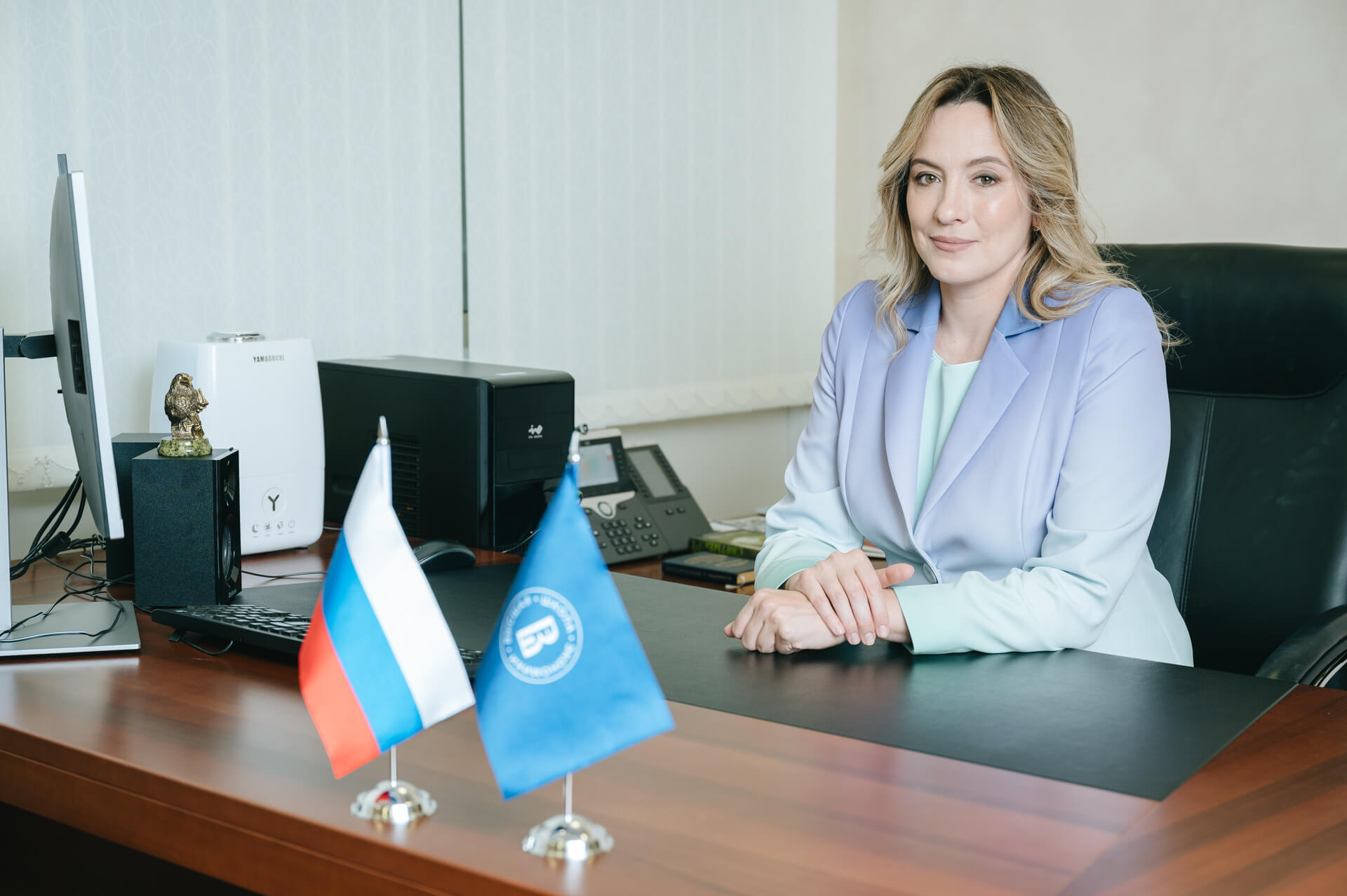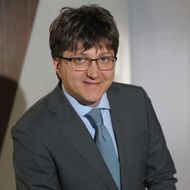‘The Goal of the Contest Is to Select Bold Ideas Aimed at Fostering a More Equitable Global Development’

HSE Vice Rector, Head of the BRICS Expert Council–Russia and Co-chair of the BRICS Civil Forum Victoria Panova, and Dean of the HSE Faculty of Humanities and Chair of the Contest Jury Felix Azhimov, announced the primary objectives of the contest, its format and potential participants during a press conference at TASS. Nationals from the BRICS countries, aged 18 to 45, are eligible to apply for participation in the contest. The jury will select ten winners, three of whom will be given the opportunity to attend the BRICS Civil Forum in Moscow in person.
The contest 'Vision 2050—BRICS People 2050—How BRICS Would Change the World by 2050' is conducted within the framework of the BRICS Civil Forum. The goal of the contest is to select bold and innovative ideas for a more just and equitable global development by 2050, reflecting the vision of the world's majority, according to Victoria Panova.

The contest is one of the initiatives proposed by the BRICS Civil Forum’s Working Group 'Vision 2050: Values and Rights of Nations.' Participants are invited to present a vision of the future which would be better than the present for the whole of humanity, and to propose long-term measures to achieve it.
Submissions are accepted until May 1 on the Civil Forum's website.
The BRICS Civil Forum serves as a platform for discussion and presentation, engaging civil society members from the BRICS nations and invited countries. The forum started its activities in 2015 at the initiative of Russia. The civil track’s operations are coordinated by the BRICS Expert Council–Russia. The BRICS Civil Forum will be held in Moscow on July 3 and 4.
Felix Azhimov explained the reasons why the philosophical essay has been chosen as the format for the contest. 'This genre is relatively flexible. While the format's boundaries may be fuzzy, it facilitates thinking from a broader perspective and allows for greater freedom of creativity. It can take the form of an expository piece, a mini-treatise, or a sketch—the author is free to decide which type of essay to choose. What matters is that it allows to explore the topic as comprehensively as possible.'
The jury will select ten winners, three of whom will be given the opportunity to attend the BRICS Civil Forum in Moscow in person.
During the discussion of the selection criteria, the experts emphasised that essay authors should aim to maintain clarity and coherence in their reasoning, while also proposing fresh ideas, which go beyond existing banalities and generalisations. 'The author should demonstrate a level of awareness regarding ongoing discussions on the proposed topic, although this requirement may not be absolute. Younger people do not have many platforms available where they can articulate their viewpoints and express themselves,' Felix Azhimov added.
The jury members also include:
Nikita Anisimov, columnist of the special projects department, Izvestia Multimedia Information Centre LLC;
Elena Topolieva-Soldunova, Director of the ANO Social Information Agency, laureate of the Russian Federation State Prize for outstanding achievements in human rights activities, co-chair of the Russian NGO Group on BRICS and G20, co-chair of the BRICS Civil Forum;
Olga Golyshenkova, President of the MAKO Association of Citizens and Organizations for the Promotion of Corporate Education;
Alexander Pastukhov, General Director of JSC Russian Technical Society;
Irina Kostetskaya, Head of the BRICS Civil Forum Secretariat;
Alexander Pavlov, Doctor of Sciences in Philosophy, Head of the School of Philosophy and Cultural Studies, Faculty of Humanities, HSE University;
Andrey Iserov, Candidate of Sciences in History, Associate Professor at the School of History, Faculty of Humanities, HSE University.
See also:
HSE Strengthens Cooperation with India and Creates Opportunities for Dialogue between Experts
Following the visit of the HSE University delegation to New Delhi, cooperation agreements with leading Indian universities were finalised. Similarly, a number of expert events, consultations and negotiations on the development of comprehensive strategic cooperation with Bharat took place. The HSE University delegation also participated in the Raisina Dialogue, one of the largest international expert forums.
HSE Hosts Round Table ‘Africa and BRICS: Reflections and Prospects’
On April 15, 2024 HSE University hosted a roundtable discussion ‘Africa and BRICS: Reflections and Prospects.’ The event featured leading experts from the South African Institute of International Affairs (SAIIA) Steven Gruzd and Gustavo de Carvalho and was moderated by HSE Vice Rector and Head of the BRICS Expert Council–Russia Victoria Panova.
Intellectual Property Issues in the Framework of BRICS Discussed at HSE University
On April 8, a roundtable discussion entitled ‘Intellectual Property on the Rise: How to Maximize Its Positive Impact and Avoid Hazards’ took place at HSE University in Moscow. The participants included Victoria Panova, HSE Vice Rector and Head of the BRICS Expert Council–Russia, andAlan Freeman, Co-Director of Geopolitical Economy Research Group at the University of Manitoba; Secretary of Geopolitical Economy Research and Education Trust; Co-Editor of Geopolitical Economy Book series, Manchester University Press.
HSE University to Reward Students Who Write Their Thesis Using AI
HSE University has launched a competition for solutions using artificial intelligence technology in theses work. The goal of the competition is to evaluate how students use tools based on generative models in their 2024 graduation theses (GT).
‘We Have Promising Opportunities with Africa, and It Is Important to Foster Cooperation’
A Strategic Session focusing on cooperation between Russia and African countries in the sphere of higher education was held at HSE University's building on Pokrovsky Bulvar. The event was attended by representatives of HSE University, rectors of other Russian universities, and ambassadors and ministers of higher education from several African states.
‘Fine-Tuning the Molecule’: Prospects for Biosimilar Market in BRICS Space
The market for biological products and their analogues is one of the most promising in the pharmaceutical industry. BRICS countries currently have great opportunities to develop this segment. The International BRICS Competition Law and Policy Centre at HSE University, together with the Institute of Chemical Technology, Mumbai, held a meeting of the BRICS Working Group for the Research of Competition Issues in Pharmaceutical Markets.
BRICS Antimonopoly Authorities to Join Forces in Regulating Grain Markets
More than 70% to 80% of the calories we consume are derived from grain products. However, the global grain market today is dominated by a small group of traders. The HSE International BRICS Competition Law and Policy Centre has proposed establishing an intergovernmental BRICS platform on fair competition to serve as a new mechanism for coordinating the efforts of antimonopoly authorities in regulating global markets. This topic was discussed at an international seminar in Cairo.
HSE University Hosts the First Meeting of Russian NGO Representatives as Part of BRICS Civil Track
More than 50 representatives of non-profit organisations took part in the meeting, where they discussed the event plan for 2024 and thematic areas of activity of the working groups of the BRICS Civil Forum, scheduled to be held in Moscow in July 2024. The BRICS civil track’s operations are coordinated by the BRICS Expert Council–Russia.
BRICS Expert Council–Russia Launched at HSE University
The official presentation of the BRICS Expert Council – Russia has taken place at HSE University. The Council will be responsible for the information, analytical and expert support of the Russian BRICS Chairship 2024.
Imprint: An Open Competition for Photographers
The ‘Photography’ educational track of the HSE Art and Design School is launching an online magazine called Imprint. The magazine will focus on collecting, summarising, and making sense of information about modern photography in Russia. The school will support talented photographers and offer them a platform for creating, developing, and uniting.



